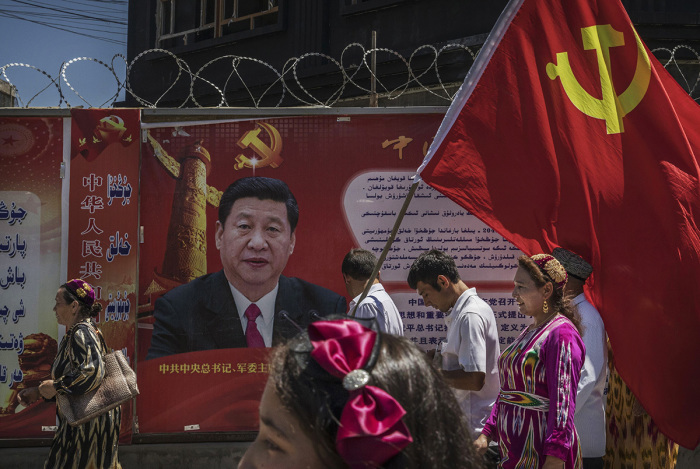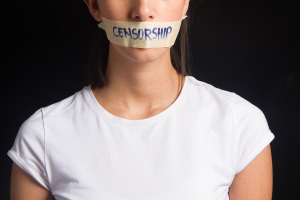The Christian Post's top 10 news stories of 2021 (part 2)

5. Global persecution, kidnappings and conflict
There were many developments on the international stage in 2021 when it comes to global persecution and international conflict.
The United States government took a harder stand against China’s persecution of religious minorities, American missionaries were kidnapped in Haiti and a civil war has displaced millions and killed thousands in a Christian-majority region of Ethiopia.
China’s genocide
In January, under the Trump administration, the U.S. State Department declared China’s persecution of Uyghur and other Muslim ethnic minorities in the western Xinjiang province a “genocide” after human rights activists warned for years that China has imprisoned more than 1 million people in concentration camps where they are taught to never oppose the Chinese Communist Party rule.
At the time, then-Secretary of State Mike Pompeo said that “examination of the available facts” show that the People’s Republic of China “has committed crimes against humanity against the predominantly Muslim Uyghurs and other members of ethnic and religious minority groups in Xinjiang.”
“I believe this genocide is ongoing, and that we are witnessing the systematic attempt to destroy Uyghurs by the Chinese party-state,” Pompeo said at the time, adding that the Communist Party is “engaged in the forced assimilation and eventual erasure of a vulnerable ethnic and religious minority group.”
The genocide declaration was upheld by the Biden administration. In December, the Biden administration announced a diplomatic boycott of the 2022 Beijing Winter Olympics due to “ongoing genocide and crimes against humanity & other human rights abuses.”
In addition to the mistreatment of Uyghurs, China’s crackdown on other religious minorities continued as it has a history of persecuting Christians, Tibetan Buddhists and Fulan Gong practitioners.
As it has long cracked down against house churches and unregistered religious groups, China imposed harsh new administrative measures for religious groups in February that critics warned are an attempt by the government to exert even more control over areas of religious life.
The rules state that only registered religious groups can operate legally in China and that all religious organizations must support the CCP leadership, promote socialism and adhere to “sinicization” (incorporating Chinese influence into religion).
Under the new rules, all aspects of religious communities are subject to approval from the Chinese government’s religious affairs department — everything from worship gatherings to daily projects. The new rules also state that religious leaders are required to promote submission to the Chinese Communist Party.
After the new measures went into effect, it was reported that China had shut down Christian WeChat public accounts on grounds they violated “Internet User Public Account Information Services Management Provisions” and removed Bible apps from the App Store in China. In October, Apple removed a popular Bible app and a popular Quran app from the App Store in China.
Tigray conflict
The predominantly Christian Tigray region of Northern Ethiopia has been marred by a civil war that began in November 2020 and lasted throughout 2021. Fighting between the rebel Tigray People's Liberation Front and forces from both the Ethiopian and Eritrean governments has seen thousands killed and displaced millions from their homes.
TPLF is a left-wing rebel group that led Ethiopia from 1991 until Prime Minister Abiy Ahmed came to power in 2018. Fighting began after the TPLF attacked an Army base last year, which sparked military responses from Ethiopian and Eritrean defense forces.
The world was horrified earlier this year when reports revealed how civilians were killed in massacres targeting Tigray towns carried out by troops from Eritrea. Witnesses claimed that Eritrean soldiers went door-to-door killing men and boys as young as 7.
Witnesses also allege Eritrean soldiers opened fire on Maryam Dengelat Church as hundreds of believers celebrated mass. Although many tried to flee into neighboring villages, troops were accused of chasing them. The attack allegedly lasted for three days as soldiers went house to house.
In January, it was reported that as many as 750 people were killed in a November 2020 attack on Maryam Tsiyon Church in Aksum, where locals believe the Ark of the Covenant described in the book of Exodus was held.
Eritrean troops also reportedly destroyed and looted the historic Debre Damo Monastery.
In May, President Joe Biden expressed concern over the escalating violence and vowed to work with the Ethiopian Government, the African Union and the United Nations to reach a diplomatic solution to the crisis.
In September, 10 archbishops in the North American Dioceses of the Ethiopian Orthodox Tewahedo Church urged the Biden administration to intensify efforts to bring an end to the conflict in Tigray.
While much international news coverage has focused on atrocities committed by the Eritrean forces on Tigray civilians, the archbishops met with State Department officials and members of U.S. Congress to call for a “fair” diplomatic process to hold the TPLF accountable for the atrocities it has committed.
Archbishop Abune Fanuel of Washington, D.C., accused TPLF of “killing thousands and violating every [law] on the books.”
“Even before this war began, there had been a lot of attempts by the Ethiopian government and the Ethiopian people for a peaceful resolution to the problem,” Fanuel told The Christian Post. “But they started the war and they have done a lot of damage. Even when the government has taken a unilateral ceasefire, they wage war in Amhara and the Afar regions. That’s the reason for millions fleeing those places."
Haiti
It’s been a rough year for those living in the Caribbean country of Haiti, complete with a disastrous earthquake, kidnappings, protests and the assassination of President Jovenel Moïse in July.
Said to be the most impoverished country in the Western Hemisphere, Catholic bishops led the faithful in an April protest at a Catholic mass against a spate of kidnappings targeting priests and others. In response, police reportedly fired teargas at attendees of the mass as they flowed into the streets.
Days before the protest, the Catholic Archdiocese of Port-au-Prince criticized “the descent into hell of Haitian society” and the “violence of armed gangs.”
On Oct. 16, 17 missionaries serving with the Ohio-based Christian Aid Ministries — 16 from U.S. and one from Canada — were kidnapped by the notorious 400 Mawozo gang.
The kidnappers demanded a ransom payment of $1 million per missionary. The abducted group included six men, six women and five children and range in ages from 8 months old to 48 years old.
In November, two of the kidnapped missionaries were released, allegedly for medical reasons, without a ransom being paid. Two weeks later, three more missionaries were released.
On Dec. 16, authorities and Christian Aid Ministries announced the release of the 12 remaining missionaries.
"Join us in praising God that all seventeen of our loved ones are now safe," the group said in a statement."Thank you for your fervent prayers throughout the past two months. We hope to provide more information as we are able.
Two weeks before the group of missionaries was kidnapped, 79-year-old American Pastor Jean Pierre Ferrer Michel was kidnapped from his church along with two others. He was freed in late October after $550,000 was paid for his release.
Samuel Smith contributed to this report




























